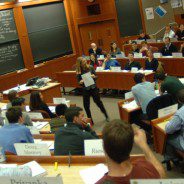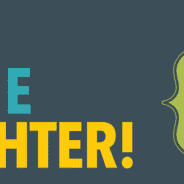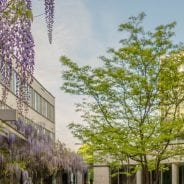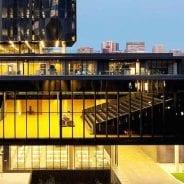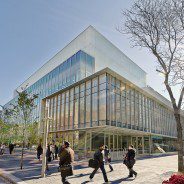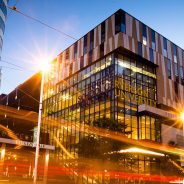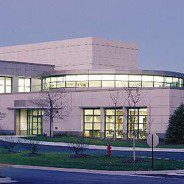Search results for :
Graziado School of Business Faculty Member Champions Equal Pay for Women
With California poised to enact one of the strongest equal pay laws in the country, a faculty member at Pepperdine University’s Graziado School of Business and Management took to the Huffington Post to praise the lead her home state is taking on the issue and call for others to follow suit.
Dr. Bernice Ledbetter, who teaches organizational theory and management at Graziado, blogged about the importance of a bill, SB 358, now making its way through the California State Legislature. Intended to prohibit retaliation against employees who inquire about pay differences at work, the bill also proposes rules around the recovery of wages by employees based on gender discrimination.
GMAT Bootcamp from the Schulich School of Business
Are you looking to enroll in the Schulich School of Business at York University for Fall 2016? You can prepare for success, meet fellow MBA applicants, and get to know the Schulich campus with the GMAT Bootcamp hosted at the Schulich School of Business this October.
The Schulich GMAT Bootcamp is a 30-hour intensive study course that will get you ready to ace the test and get into the Schulich MBA program. Taught by Quantum Test Prep, your instructor is an expert in GMAT study and workshops. All Quantum Test Prep instructors are MBA and MEd graduates who received a top 3 percentile score on the GMAT exam.
As a participant, you will delve deep into the four different sections of the GMAT: Mathematical, Verbal, Integrated Reasoning and Analytical Writing. The Bootcamp focuses on developing and practicing efficient test processes and tackling the major question types within each section. And by the end of the Bootcamp, you should have the skills necessary to successfully complete the GMAT and receive the score you need to enter the Schulich School of Business MBA program.
The Schulich School also knows that studying for the GMAT can be difficult with a busy work schedule. That’s why the Bootcamp is held in the evenings and over the weekend. The dates and times are as follows according to the Schulich Blog:
- Friday, October 30th: 6pm – 10pm
- Saturday, October 31st: 9am – 6:30pm
- Sunday, November 1st: 9am – 6:30pm
- Monday, November 2nd: 6pm – 10pm
- Tuesday, November 3rd: 6pm – 10pm
While a great GMAT score and entrance into the Schulich School of Business MBA program is priceless, the cost of the workshop after taxes is $815.87. The cost covers all materials and training. And, if you’re accepted into the Schulich MBA program for Fall 2016, you’ll be fully reimbursed for all costs!
Don’t wait. Register for the Schulich GMAT Bootcamp (30hr) Course today by visiting the website.
5 Tips to Improve Your Resume for Your MBA Application
Your resume is one of the most powerful tools you have when applying for an MBA program. Schools want to know what you have done in the past so that they have an idea of what you will bring to the table in the future. Continue reading…
Choosing Between the GRE and GMAT
GRE and GMAT: Which One to Take?
As you begin to explore an MBA education, the question of whether to take the GRE or GMAT may soon arise. While the GMAT has traditionally been the test that MBA applicants take, more and more top graduate business programs are starting to accept the GRE as well. Ultimately, accepting both tests gives the schools a larger pool of applicants, allowing them to be more selective in terms of which students they accept into their programs.
Fordham Holds Panel Discussion on Cuban-American Relationship
Fordham University recently hosted a panel discussion of experts on the relationship between Cuba and the United States. The event was held on Sept. 16 at the Fordham Lincoln Center campus. The event was organized by Gabelli School of Business professor Marcia Flicker, an associate professor of marketing at the school. The panel discussion featured insight in to the Cuban-America relationship for foreign investors and local entrepreneurial efforts for maintaining the new positive relationship between the two countries.
The panel featured three experts on the Cuban business world as well as the relationship history between Cuba and the U.S. The panel included, French entrepreneur Michel Villand, Gabelli alumnus Alvaro Sainz Ortiz and Vito Echevarria, a New York-based freelance journalist. Michel Villand recently published a book detailing his successful ten year venture with the Cuban government. Alvaro Sainz Ortiz recently worked for a global music company and shared his insights in to the special challenges that American firms face when dealing with Cuba. Vito Echevarria, who contributes to the Cuba Standard, covers the problems faced by and news related to the Cuban economy.
New Podcast Series Distills HBS’s Signature Case Method
This post has been republished in its entirety from original source clearadmit.com.
We spoke with Harvard Business School (HBS) Director Dee Leopold back in June, when she shared that an updated version of the Inside the HBS Case Method video—which every prospective applicant to the school is strongly encouraged to watch—is in the works this year. As far as we know, it hasn’t yet debuted, but in the meantime, HBS has announced the launch of a new podcast series that helps demystify the legendary pedagogy for which the school is known.
 Called Cold Call, the podcast series breaks down HBS’s signature case method into twice monthly snippets that help listeners feel as if they are right there in the middle of the HBS classroom. Hosted by Chief Marketing and Communications Office Brian Kenny, each podcast is led by an HBS professor who gives listeners back-stage passes, if you will, to a case he or she has written. The podcast explores what inspired the case and why it matters in the world of management practice. Added bonuses include interesting anecdotes the professor chooses to share that emerged as part of researching and then teaching the class to students. Continue reading…
Called Cold Call, the podcast series breaks down HBS’s signature case method into twice monthly snippets that help listeners feel as if they are right there in the middle of the HBS classroom. Hosted by Chief Marketing and Communications Office Brian Kenny, each podcast is led by an HBS professor who gives listeners back-stage passes, if you will, to a case he or she has written. The podcast explores what inspired the case and why it matters in the world of management practice. Added bonuses include interesting anecdotes the professor chooses to share that emerged as part of researching and then teaching the class to students. Continue reading…
New Forté “Rising Star” Pilot Program Preps Undergrad Women for Business
This post has been republished in its entirety from original source clearadmit.com.
Undergraduate women on 10 U.S. campuses can now participate in a fun, free online program designed to help them prepare and compete for top jobs in business-related fields. The new “Rising Star” pilot initiative, announced yesterday by the Forté Foundation, is designed to encourage young women of all majors to start exploring career options early to better position them for jobs in business fields immediately upon graduation. By extension, the new program could also help position women to apply to competitive MBA programs after acquiring requisite work experience.
Schools participating in the “Rising Star” program include Carnegie Mellon University, Cornell University, George Washington University, Indiana University, New York University, Ohio State University, the University of Michigan, the University of Texas at Austin, William & Mary and Yale University. Forté handpicked the participating schools, most of which are in the consortium’s business school membership already, with the goal of including a diversity of schools ranging from large public institutions to small private colleges. “We went to familiar campuses where we have a strong support network for this pilot year, with the intention of expanding as soon as the pilot year is over,” says Forté Executive Director Elissa Sangster. Continue reading…
Kellogg-Schulich Executive MBA
Kellogg-Schulich Executive MBA Program Structure
Consistently ranked as the top program in Canada by The Economist and the Financial Times of London (UK), the Kellogg-Schulich Executive MBA in Toronto is a partner in the Kellogg School of Management’s global network of EMBA programs in the USA, Germany, Israel, China, and Canada.
The Wall Street Journal ranks this network among the top five in the world. With its global content, locations, faculty, and students, the Kellogg-Schulich EMBA makes the world your classroom. This global EMBA gives students the unique opportunity to learn from and interact with business leaders from around the world.
Curriculum
With classes every third weekend over 18 months, the class schedule minimizes time away from work and maximizes in-class and study team learning. The overall format of the Kellogg-Schulich Executive MBA is flexible, balanced and designed to accommodate your career development and personal goals. The program begins in January and ends in June of the following year.
Class Profile for the Kellogg-Schulich Executive MBA
The Kellogg-Schulich admissions process is highly selective. EMBA students are typically mid-career senior managers, successful entrepreneurs, and high-potential individuals selected on the basis of their outstanding achievements and leadership potential. The selection process ensures that your EMBA classmates have highly diverse educational, cultural, industry, and sector experience, all of which serve to enrich the overall peer learning experience. They typically have 13 years of work experience and are around 37 years of age. The male-female split is 60/40.
Tuition, Scholarships, and Financial Aid
The program fee for the Kellogg-Schulich Executive MBA is $110,192 CAD for domestic students and $127,333.52 CAD for international applicants. An additional fee of $1,349.13 CAD is due every year as well, in addition to a $10,000 CAD confirmation deposit.
This fee is payable in six installments and includes tuition, books, and course materials; organized meals during class week-ends at the Schulich School; organized meals and accommodation during the residential Schulich Live-In week; and organized meals and accommodation for the required off-site modules.
Students have the opportunity to personalize the program for their individual career objectives by attending a Global Electives Module at a partner-school location.
A limited number of scholarships are available to qualified applicants. They are awarded on the basis of the quality of the applicant’s professional profile, merit, and need.
Admissions
To be considered for admission, you should have at least eight years work experience with substantive management experience and possess the Canadian equivalent of a university Bachelor’s degree from an accredited institution. Management experience could include executive, functional and/or project management experience. Successful entrepreneurs are also encouraged to apply. All candidates are personally interviewed.
There is a non-refundable application fee of CDN $150. The Kellogg-Schulich Executive MBA Program does not require the GMAT of candidates who satisfy the program’s academic requirements. Submit a copy of your transcripts to find out if you are exempt from the GMAT.
To find out if you are eligible for the Kellogg-Schulich Executive MBA, you can submit your resume and transcripts to the school for a quick pre-assessment.
Kellogg-Schulich Executive MBA Deadlines for January 2021 Entry:
Spring Round of Admissions: June 12, 2020
Fall Round of Admissions: September 18, 2020
Final Round of Admissions: December 4, 2020
Part-Time MBA
Schulich Part-Time MBA Program Structure
The Schulich part-time MBA allows you to maximize learning and career development simultaneously. Complete the program in 10 terms (approximately three years). At the Keele campus, choose evenings (two per week), alternate weekends (Saturday/Sunday) or day classes. The downtown King and Bay campus offers evening classes. The Schulich full-time and part-time MBA are the same great programs (only the schedule differs), enabling you to switch between the two.
Curriculum
Underlying all pedagogy is an emphasis on developing managerial effectiveness. Overall, there is an emphasis on student involvement and participation in the classroom, and on practical managerial application. Many courses involve real-time, real-life, in-company projects of one sort or another.
There is no overall teaching format, as the organization, pedagogy, and style of classes is determined solely by the most effective way to teach a particular course. Many course instructors make extensive use of case studies, while others do not. Other approaches to delivering courses include in-class presentations, role-playing exercises, and visiting speakers and business leaders. There are also 18 areas of specialization in management functions, industry sectors, and special business issues.
The normal part-time load is 1.5 to 7.5 credit hours of courses per term (typical course load is 6 credit-hours per term). The program length is typically 36 to 40 months with an accelerated part-time plan of 16 to 20 months.
Class Profile
The average Schulich full-time MBA class is approximately 60 percent male and 40 percent female; about half were international students. The average student age was 30-years old, and they entered the program with five years’ professional experience. The GMAT average was 670; while the average GPA was between 3.3 and 4.0.
Career Statistics for Schulich Part-Time MBA
According to the class of 2019 of 89% were hired within the first 3 months of graduation with the average salary being $93,100. The starting salaries ranged from $48,000 to $240,000 with an average signing bonus of $13,800. Overall, 155 total companies hired Schulich part-time MBA graduates.
Tuition, Scholarships, and Financial Aid
The current Schulich part-time MBA is completed over ten terms, with domestic students paying an estimated $72,350 CAD in tuition cost, and international students paying $106,900 CAD.
The Schulich Financial Aid Department assists students with all issues pertaining to financial aid. Students can visit the office at their convenience or by appointment; assistance also is available in person, via email, by phone, or by mail. Awards, loans, bursaries, and other financial aid options are available to all students.
Admissions
To be eligible for admission consideration, each MBA applicant must hold an undergraduate degree from a recognized university with at least a B average in the last two full years (or equivalent) of academic work. An official GMAT score is required; a competitive score based on our successful candidates is around 660, and you should have a balanced score (at least 50th percentile) across all four measures of the exam. Two years of relevant full-time work experience post-degree is required.
Schulich undergraduate students that earned a BA degree in the past five years are eligible for GMAT/GRE waivers, as long as they maintained a minimum “B” grade average, or, during the entirety of the Master of Management (MMgt) program.
To apply, you must complete and submit the online application, along with a non-refundable application fee of $150 CAD. Also required are written and video essays, your resume, two letters of recommendation and official transcripts from all post-secondary institutions attended (You may also upload your unofficial transcripts, which the admissions team can review while the official copies are on their way to Schulich).
Non-native English speakers are required to submit TOEFL, IELTS, PTE Academic or YELT scores. (Note: In special circumstances, admission to Schulich may be conditional upon taking an intensive English language course).
2021-2022 Schulich Part-Time MBA Deadlines
| Entry | Round 1 | Round 2* | Round 3 | Round 4** |
|---|---|---|---|---|
| January 2022 | June 10, 2021 | July 22, 2021 | September 2, 2021 | October 28, 2021 |
| September 2022 | October 28, 2021 | February 10, 2022 | March 31, 2022 | May 19, 2022 |
Schulich Part-Time MBA FAQs
How has the university dealt with the current pandemic?
Classes are currently online to keep students and staff safe.
What graduate programs are offered at the Schulich School of Business?
Students may achieve an MBA, MMKG, EMBA, MREI, MMgt, MF, MBAN, MSCM, MAcc, MMAI as well as dual degree options at the school.
What are the 18 specializations offered in the program?
Specializations include Accounting, Business and Sustainability, Entrepreneurial Studies, Financial Risk Management, Global Mining Management, Health Industry Management, Marketing, Organization Studies, Social Sector Management, Arts, Media, and Entertainment Management, Business Consulting, Finance, Financial Services, Global Retail Management, International Business, Operations Management, and Information Systems, Real Estate and Infrastructure, and Strategic Management.
Full-Time MBA
Schulich Full-Time MBA Program Structure
The Schulich full-time MBA at York University offers a flexibility of options to complete your MBA in either 16 or 20 months. If you have an undergraduate business degree and work experience, you may also qualify for the eight-month Accelerated MBA. You can start your full-time MBA studies in September or January.
Curriculum
Schulich full-time courses are offered on the Keele Campus, and first year courses are also available full-time downtown. Underlying all pedagogy is an emphasis on developing managerial effectiveness. Overall, there is an emphasis on student involvement and participation in the classroom, and on practical managerial application. Many courses involve real-time, real-life, in-company projects of one sort or another.
There is no overall teaching format, as the organization, pedagogy and style of classes is determined solely by the most effective way to teach a particular course. Many course instructors make extensive use of case studies, while others do not. Other approaches to delivering courses include in-class presentations, role-playing exercises and visiting speakers and business leaders.
The normal full-time load is nine to 15 credit-hours of courses per term (maximum course load is 18 credit-hours per term). The program length requires a minimum of 16 months over four consecutive terms; an average of 20 months with summer off; or a maximum of 24 months over six terms. There is also an accelerated option where students can complete their study in 12-18 months.
Students with an oral proficiency in a second language and an interest in international work terms may wish to consider an application to the International MBA (IMBA) program.
Full-Time Rankings
• Forbes: 8 (International)
• The Economist: 66
Class Profile
The average Schulich full-time MBA class is approximately 67 percent male and 33 percent female; about half were international students. The average student age was 29-years old, and they entered the program with four years’ professional experience. The GMAT range was 600-780; while the average GPA was between 3.3 and 4.0.
Career Statistics
Eighty-nine percent of the most recent class accepted job offers within three months of graduation. The average starting salary for those graduates was around $91,500 CAD, with an average signing bonus of $16,250 CAD from over 140 companies. Students accepted jobs in almost equal numbers in the financial services and technology industries—21 and 20 percent, respectively. Retail followed at 13 percent, with consulting at nine percent and real estate claiming eight percent of graduates.
Tuition, Scholarships, and Financial Aid for the Schulich Full-Time MBA
The current Schulich full-time MBA is completed over four terms, with domestic students paying an estimated $70,100 CAD in tuition, and international students paying $103,800 CAD.
The Schulich Financial Aid Department assists students with all issues pertaining to financial aid. Students can visit the office at their convenience or by appointment; assistance also is available in person, via email, by phone or by mail. Awards, loans, bursaries and other financial aid options are available to all students, domestic and international.
Admissions for the Schulich Full-Time MBA
To be eligible for admission consideration to the Schulich Full-Time MBA, each MBA applicant must hold an undergraduate degree from a recognized university with at least a B average in the last two full years (or equivalent) of academic work. An official GMAT score is required; a competitive score based on our successful candidates is around 660, and you should have a balanced score (at least 50th percentile) across all four measures of the exam. Two years of relevant full-time work experience post-degree is required.
Schulich undergraduate students that earned a BA degree in the past five years are eligible for GMAT/GRE waivers, as long as they maintained a minimum “B” grade average, or, during the entirety of the Master of Management (MMgt) program.
To apply, you must complete and submit the online application, along with a non-refundable application fee of $150 CAD. Also required are written and video essays, your resume, two letters of recommendation and official transcripts from all post-secondary institutions attended (You may also upload your unofficial transcripts, which the admissions team can review while the official copies are on their way to Schulich).
Non-native English speakers are required to submit TOEFL, IELTS, PTE Academic or YELT scores. (Note: In special circumstances, admission to Schulich may be conditional upon taking an intensive English language course).
Deadlines
| Entry | Round 1 | Round 2* | Round 3 | Round 4** |
|---|---|---|---|---|
| January 2022 | June 10, 2021 | July 22, 2021 | September 2, 2021 | October 28, 2021 |
| September 2022 | October 28, 2021 | February 10, 2022 | March 31, 2022 | May 19, 2022 |
Curious about your chances of gaining admission to top business schools? Now you can see how hundreds of previous applicants fared in just a few clicks. The LiveWire Data Dashboard’s interactive data visualization tools allow you to spot trends, compare MBA programs, and benchmark your stats against successful applicants at your target schools. Learn more here! Ready to explore the data? Purchase a 30-Day or 365-Day subscription in our shop for immediate access!
Executive MBA
University of Toronto Executive MBA Program Structure
The University of Toronto Executive MBA Program (EMBA) at Rotman School of Management is designed for a select group of working senior management professionals looking to earn a Master of Business Administration degree and advance their leadership competency. The EMBA program is renowned for its academic rigor, and teaches students deep leadership fundamentals, sound decision-making frameworks, and practical management skills. The program takes an estimated 13 months to complete.
The Global Executive MBA is a global leadership program that focuses on increasing leadership competency and accelerating global professional performance. This innovative program offers mid-to-senior executives from all over the world the opportunity to travel to international cities on four continents while studying emerging markets. Students live and work in their home countries, and meet together six times over 18 months.
Curriculum for the University of Toronto Executive MBA
The one-year University of Toronto Executive MBA Program incorporates self and team-development planning with strategy, and uses acceleration and applied-learning methods to ensure students are putting their education to practice. Rotman employs a unique residential and cohort learning setting, University of Toronto faculty expertise, engagement and access, and a manageable, condensed schedule for both personal and professional flexibility.
The program is structured around four terms, each of which includes a one-week residential module in downtown Toronto. Regular class sessions take place over two days, twice a month, on a Friday and Saturday. The innovative curriculum is based on leadership development, “Integrative Thinking,” and better decision-making. International electives are also available, letting students explore global opportunities for learning at one of the school’s distinguished partner institutions.
The University of Toronto Executive MBA has one intake per year. Classes begin in September.
Class Profile
University of Toronto Executive MBA classes average 39 years of age, 15 years of work experience and nine years of management experience. Approximately 40 percent of the EMBA class is female and 60 percent male. While class size fluctuates year to year, the program accepts 70 students per year. Global EMBA classes have nearly identical statistics except only 50 students are accepted with an average age of 38 , and 14 years work experience.
Tuition, Scholarships, and Financial Aid
The cost of tuition for the University of Toronto Executive MBA is $115,442 CAD. This includes tuition, all program materials, class-day meals, accommodations for Toronto residential modules, and customized career coaching.
The One-Year EMBA program is considered a full-time MBA program and therefore the tuition fee is partly tax deductible. It also qualifies for the Canada Revenue Agency’s Life Long Learning Plan. There are some scholarships available. Interested students must submit a letter of request for each award they are applying, outlining their candidacy. All awarded candidates are contacted before program start.
The Global EMBA costs a total of $100,000 CAD. This includes tuition, meals on class days, and transportation during each module. It does not include travel visas, flights, accommodations, or other personal expenses related to the program.
Admissions
Rotman’s personalized approach assures each applicant a streamlined application process, and ensures that the EMBA of their choice is the right fit for each student’s career and personal goals. Applicants are admitted on a rolling basis, and advised to apply early as space is limited.
Applicants should first complete the online pre-application form and attach a current résumé. Next comes a phone discussion with a Program Recruitment Officer within two to three business days about candidacy and qualifications, and an in-person or Skype interview with the Program Director.
Once complete, the prospective student should formally apply. The application fee is required, along with a formal application, résumé, two professional reference forms, an official transcript (under seal) from each post-secondary institution attended, and employer form confirming type of support granted. A GMAT or GRE score may be required. An English-proficiency score is required from all applicants who have degrees from institutions in which English is not the language of instruction or examination. The admission committee decision is shared within five business days after submission, based on strength of work experience, academic ability to successfully complete a graduate program, management/leadership skills, learning objectives, and expectations.
Application deadlines
Round 1: November 10, 2021
Round 2: March 9, 2022
Round 3: June 8, 2022
University of Toronto Executive MBA FAQ’s
How has the university coped with the current pandemic?
Classes are being delivered remotely currently.
What graduate degrees are offered at Rotman?
Master of Finance, Master of Management Analytics and Master of Financial Risk Management are several other options degrees are available.
What are some industries recent graduates came from?
Thirty-four percent of the recent class came from tech and 26% came from financial services.
Morning/Evening MBA
University of Toronto Morning/Evening MBA Program Structure
The Toronto Rotman Part-time MBA holds classes from 7 to 8:59 a.m. on Tuesday and Thursday mornings. This MBA is ideal for working professionals who want to advance their career while still working full-time. The program starts in August and can be completed in 32 months.
With a curriculum much like the full-time and Morning MBA programs, the Evening MBA program is also a part-time program that holds classes held from 6:30 to 8:30 p.m., twice per week. It also starts in August and can be completed in 32 months.
Curriculum
Students enrolled in either of the part-time programs will experience the same learning style that is offered to full-time MBA students. They will take classes twice a week, allowing them to keep up with their work schedules. The program begins in August, and students will take part in an orientation week before starting the main program.
The program begins in the first year with core courses such as Managerial Negotiations, Statistics for Management and Managing Customer Value, which help build a solid foundation of business knowledge. In the second year, students may choose to specialize in a particular area of interest or develop a broader skill set through elective courses. There are more than 90 elective courses and over 15 major areas that students can partake in in order to customize their MBA experience.
Rotman offers no exemptions for courses completed toward another undergraduate or graduate degree.
Class Profile at the Toronto Rotman Part-Time MBA
Both the morning and evening MBA programs have an average 50-60 spaces available. The average age of those classes was 30 -years old, with 31 percent female students and 69 percent male students. The average work experience per student is six years.
Tuition, Scholarships, and Financial Aid
For the University of Toronto Part-time MBA Class of 2023, three years of part-time study towards an MBA degree tuition is $92,538 CAD for Canadian citizens and permanent residents, and $127,929 CAD for international students—excluding significant ancillary fees (please note that tuition fees, University incidental fees and the Rotman ancillary fees are set annually and are subject to change). The estimated minimum funds a single student would need for living expenses for the first 12 months in Toronto $20,856 to $28,756.
There is more than $4 million of financial aid available through the Rotman School of Management. This aid comes in the form of a multitude of loan programs, government financial assistance and employment opportunities for both domestic and international students.
Admissions
Applicants to the MBA programs must have completed a bachelor’s degree or its equivalent for admission. The application fee is $195, and required are two written essays, two letters of recommendation and a current résumé. Note: On average, applicants have six years of work experience, but only two are required. Applicants should have a minimum 3.0 GPA, as well as a GMAT or GRE score (GMAT requirements waived for applicants who have completed CFA III). An English-proficiency score is required from all applicants who have degrees from institutions in which English is not the language of instruction or examination. After the submission of their application, individuals will be contacted to complete an interview. Due to the competitive nature of admissions to the program, successful candidates tend to exceed the minimum requirements.
2021-2022 Toronto Rotman Part-Time MBA Deadlines
Application deadlines to start class in fall 2022 are:
- Round 1: November 17, 2021
- Round 2: February 9, 2022
- Round 3: April 13, 2022
- Round 4: June 15, 2022
Toronto Rotman Part-Time MBA FAQ’s
How has the university coped with the pandemic?
Classes are still happening, only some are virtual.
How often are students in the classroom?
ME MBA students have class 8 days/month (~640 in-person hours) to allow for a flexible schedule.
What is the predominant background of ME MBA students?
About 35% of the most recent class came from the finance industry,12% from technology, and 8% from consulting.
Full-Time MBA
University of Toronto Full-Time MBA Program Structure
The University of Toronto full-time MBA at Rotman School of Management combines 16 months of study with a four-month opportunity for an internship. In the second-year at the Rotman full-time MBA, students may choose to specialize in a particular discipline to guide them toward a specific career path.
Curriculum
The full-time MBA program at Rotman takes 20 months to complete. Sixteen months are spent in classes and four are spent completing an internship. Students in their first year will spend their time taking core classes that cover fundamental business skills such as accounting, ethics, strategy, operations management and economics. Students will also complete a capstone course.
In their second year, students can choose electives. They may pick an MBA major or take a variety of electives. Majors include Brand Management, Consulting, Investment Banking, and Real Estate.
Full-Time MBA Rankings
• Bloomberg (International): 9th
• Financial Times: 48th
Class Profile
The average Schulich full-time MBA class is approximately 60 percent male and 40 percent female; about half were international students. The average student age was 30-years old, and they entered the program with five years’ professional experience. The GMAT average was 670; while the average GPA was between 3.3 and 4.0.
Career Statistics
Eighty-nine percent of the most recent class accepted job offers within three months of graduation. The average starting salary for those graduates was around $93,100 CAD, with an average signing bonus of $13,800 CAD from over 150 companies. Students accepted jobs in almost equal numbers in the financial services and technology industries—22and 17 percent, respectively. Consulting followed at 15 percent, with marketing at eight percent and real estate as well as manufacturing claiming seven percent of graduates.
Tuition, Scholarships, and Financial Aid
For the Class of 2022, the University of Toronto full-time MBA degree tuition cost for both years is $92,540 CAD for Canadian citizens and permanent residents, and $127,930 CAD for international students—excluding significant ancillary fees (please note that tuition fees, University incidental fees and the Rotman ancillary fees are set annually and are subject to change). The estimated minimum funds a single student would need for living expenses for the first 12 months in Toronto $19,656 – 27,556
The Schulich Financial Aid Department assists students with all issues pertaining to financial aid. Students can visit the office at their convenience or by appointment; assistance also is available in person, via email, by phone or by mail. Awards, loans, bursaries and other financial aid options are available to all students, domestic and international.
Admissions
Applicants to the Rotman MBA programs must have completed a bachelor’s degree or its equivalent for admission. The application fee is $175, while one written essay and one reflection question, one video interview with a timed written response, two reference forms, and a current résumé are required. Note: On average, applicants have four years of work experience, but only two are recommended, and there is no minimum requirement.
Applicants should have a minimum 3.0 GPA with an official transcript sent directly from each institution where they earned a degree, as well as a GMAT or GRE score (no minimum score required). An English-proficiency score is required from all applicants who have degrees from institutions in which English is not the language of instruction or examination. After the submission of their application, applicants will be contacted to complete an interview. Due to the competitive nature of admissions to the program, successful candidates tend to exceed the minimum requirements.
2021-2022 Rotman Full-Time MBA Deadlines
| DEADLINE | DECISION BY |
|
Early Round: |
|
| September 3, 2021 | October 15, 2021 |
|
Round 1: |
|
| October 4, 2021 | December 10, 2021 |
|
Round 2: |
|
| January 10, 2022 | March 11, 2022 |
|
Round 3: |
|
| March 7, 2022 | April 29, 2022 |
|
Round 4: |
|
| April 25, 2022 | June 3, 2022 |
FAQ for the Rotman Full-Time MBA
Is Rotman offering virtual classes during the pandemic?
Yes, instruction will be virtual this year due to Covid-19.
Does the Rotman Full-Time MBA program allow students to focus on a specific major?
Yes – students may spend their second year focusing on one of fifteen possible majors including Sustainability, Brand Management, and Health Sector Management.
Curious about your chances of gaining admission to top business schools? Now you can see how hundreds of previous applicants fared in just a few clicks. The LiveWire Data Dashboard’s interactive data visualization tools allow you to spot trends, compare MBA programs, and benchmark your stats against successful applicants at your target schools. Learn more here! Ready to explore the data? Purchase a 30-Day or 365-Day subscription in our shop for immediate access!
Part-Time MBA
Ryerson University Part-Time MBA Program Structure
In the Ryerson University MBA Part-Time MBA program at Ted Rogers School of Management, students gain an inclusive business management education that incorporates academic theory with practical and research-based learning styles.
Curriculum
Students in the MBA program will take core classes as well as electives in an area of interest. Students will take part in class-based learning as well as practical, hands-on experiences. The MBA emphasizes the skills needed to work within global markets and to become a leader and innovator on a global scale. Technology MBA students will learn the skills needed to become a leader within the tech industry from a business perspective. Students must complete 7 core courses as well as 6 electives and a capstone project throughout the course of their MBA education.
The newly redesigned curriculum is driven by four themes: diversity, technology, innovation, and entrepreneurship. Students without a business degree may complete the program in up to 36 months and take 1-2 courses per semester while those holding an undergraduate business degree complete the program in 24 months taking 2 courses per semester.
Part-time classes are held on weeknights from 6:30 to 9:30 p.m.
Class Profile
The Ryerson University MBA has a yearly enrollment of about 120 students (including part-time and full-time), with an average work experience of 5 years.. The average age was 29-32 years old.
Career Statistics
Ryerson University part-time MBA graduates typically find employment quickly, their earning potential is strong, and their salary increase post-graduation is higher than average. The school averages a 90 percent internship-placement rate, most of which lead to full-time employment. Approximately 90 percent of MBA graduates are employed six months after graduation in full-time roles across a diverse group of industries.
Tuition, Scholarships, and Financial Aid for the Ryerson University Part-Time MBA
For the 2020-2021 school year, the Ryerson University part-time MBA degree tuition for domestic students was $20,095.66 CAD (plus additional fees) for 13 credits (11 courses), and $38,740 for international students. Students are charged tuition per course. Foundation courses are required for students without a BComm or equivalent undergraduate degree. The number of Foundation courses required is based on an official assessment of the appropriate transcripts upon application. Each foundation course would cost the student the equivalent of one credit; $1,826.88 per course for domestic, and $3,521.83 per course for international students.
Additionally, the Ontario Government has a student-loan program called the Ontario Student Assistance Program, or OSAP. This program is independent of the school and requires an application.
Admissions
All applications for the graduate programs at Ryerson University are done online through the Yeates Graduate Studies page. It takes about one hour to complete the online application. The fee is $150 and will be required before the application is processed.
Completion of a four-year bachelor’s degree from a recognized institution is required. Foundation courses will be required if this degree is not in Business Administration or Commerce. To apply to the Ryerson University part-time MBA program, applicants must submit a current résumé, two letters of recommendation, and a 500-word statement of interest. Applicants should have a minimum B average in the final two years of university study, and a GMAT score between 550 and 740. An English-proficiency score is required from all applicants who have degrees from institutions in which English is not the language of instruction or examination. After an application is submitted, the applicant will be asked to take part in a video interview.
The Ted Rogers School of Business Management’s International Exchange Program provides an opportunity for students from across the globe to gain experience at a trusted Canadian educational institution. Incoming international students can get program-specific information directly from individual schools, as well as more general information about international programs at Ryerson directly from Ryerson International.
2022 Ryerson University Part-Time MBA Deadlines
|
Spring (May) 2022
|
Part-time domestic applicants with or without a business degree
Full-time or Flex Full-time domestic applicants without a business undergraduate degree. |
January 18, 2022 | March 22, 2022* |
| Fall (September) 2022 | Part-time domestic applicants with or without a business degree
Full-time or Flex Full-time domestic applicants with business undergraduate degree. |
January 18, 2022 | June 15, 2022* |
Ryerson University Part-Time MBA FAQs
How has the university coped with the pandemic?
Classes are almost exclusively virtual in a synchronous and asynchronous format.
What graduate programs are offered at Ryerson?
The Ted Rogers School of Management offers MBA options, an MS in Management, Master of Health Administration degree as well as Ph.D. options.
How many hours a week can part-time students expect to spend on schoolwork?
Students should expect 3-6 hours of instruction per week as well as 10-20 hours of self-study time.
Full-Time MBA
Ryerson University Full-Time MBA Program Structure
MBA Global
In the Ryerson full-time MBA program at Ted Rogers School of Management, students gain an inclusive business management education that incorporates academic theory with practical and research-based learning styles.
MBA In Management of Technology and Innovation
The Ryerson full-time MBA in the Management of Technology and Innovation (MBA-MTI) program provides graduates with skills in problem-solving, critical thinking, communication, and collaboration. This is not a technical program—students of the MBA-MTI program graduate with the skills needed to manage within companies that are focused on tech and innovation.
The accelerated Ryerson MBA program can be completed in 12 months. If a student does not have an academic background in business they will be required to complete a set of Foundation Courses that can be completed in one semester.
For every course a student is enrolled in they will be in class for three hours per week. In order to be successful, students should plan on devoting a minimum of 8-10 hours per week outside of the classroom for each course.
The full-time course load is three to five courses per semester. Students are able to switch from full-time to part-time and vice-versa. These decisions will be discussed on a case-by-case basis with the Program Director.
The Curriculum at the Ryerson Full-Time MBA
Students in both MBA programs will take core classes as well as electives in an area of interest. Students will take part in class-based learning as well as practical, hands-on experiences. The Global MBA emphasizes the skills needed to work within a global market and to become a leader and innovator on a global scale. Technology MBA students will learn the skills needed to become a leader within the tech industry from a business perspective.
MBA Global students have the option to specialize in any of the following areas: Human Resources Management, International Business, Marketing, and Real Estate. Or they can choose to do a general specialization by selecting electives from different specializations, including Strategy in International Business Environment, World Logistics and Supply-Chain Management, Advanced International Marketing, Regulation Government and Social Responsibility Management, and more.
Students may also choose to do specializations for the MBA Management of Technology and Innovation (MTI) program in areas such as Information Systems Management, Media Management, Supply Chain Management, Business Analytics, Data Security, or Entrepreneurship.
Full-Time MBA Rankings
• Bloomberg (Canada): 5
Class Profile
The Ryerson University full-time MBA has a yearly enrollment of about 120 students, with an average work experience of 5 years. A GMAT score of 550 is the minimum to apply, though the average for the recent class was 624.
Career Statistics
Ryerson University’s full-time MBA graduates typically find employment quickly, their earning potential is strong, and their salary increases post-graduation is higher than average. The school averages a 90 percent internship-placement rate, most of which leads to full-time employment. Approximately 90 percent of MBA graduates are employed six months after graduation in full-time roles across a diverse group of industries.
Tuition, Scholarships, and Financial Aid
For the upcoming school year, the Ryerson University full-time MBA degree tuition for domestic students is $20,095 CAD (plus additional fees) for 13 credits (11 courses), and $38,740 for international students. Students are charged tuition per course. Foundation courses are required for students without a BComm or equivalent undergraduate degree. The number of Foundation courses required is based on an official assessment of the appropriate transcripts upon application. Each foundation course would cost the student the equivalent of one credit; $1,826.88 per course for domestic, and $3,521.83 per course for international students.
There are a number of Ryerson scholarships as well as graduate-assistant and research-assistant positions available to full-time students who meet specific criteria. Thanks to a $15 million donation from Ted and Loretta Rogers, 24 graduate scholarships and awards (worth $20,000 each) will be available to full-time students applying for the coming academic year. International students are also eligible for these scholarships.
Additionally, the Ontario Government has a student-loan program called the Ontario Student Assistance Program, or OSAP. This program is independent of the school and requires an application.
Admissions
All applications for the graduate programs at Ryerson University are done online through the Yeates Graduate Studies page. It takes about one hour to complete the online application. The fee is $150 and will be required before the application is processed.
Completion of a four-year bachelor’s degree from a recognized institution is required. Foundation courses will be required if this degree is not in Business Administration or Commerce. To apply to the Ryerson University full-time MBA program, applicants must submit a current résumé, two letters of recommendation, and a 500-word statement of interest. Applicants should have a minimum B average in the final two years of university study, and a GMAT score between 550 and 740. An English-proficiency score is required from all applicants who have degrees from institutions in which English is not the language of instruction or examination. After an application is submitted, the applicant will be asked to take part in a video interview.
The Ted Rogers School of Business Management’s International Exchange Program provides an opportunity for students from across the globe to gain experience at a trusted Canadian educational institution. Incoming international students can get program-specific information directly from individual schools, as well as more general information about international programs at Ryerson directly from Ryerson International.
2022 Ryerson Full-Time MBA Deadlines
|
Spring (May) 2022
|
Part-time domestic applicants with or without a business degree
Full-time or Flex Full-time domestic applicants without a business undergraduate degree. |
January 18, 2022 | March 22, 2022* |
| Fall (September) 2022 | Part-time domestic applicants with or without a business degree
Full-time or Flex Full-time domestic applicants with business undergraduate degree. |
January 18, 2022 | June 15, 2022* |
Alumni Spotlight: Lake Forest Graduate School of Management’s Joel Amata, MBA ‘15
Jose Daniel Amata, better known as Joel, is an alumni of Lake Forest Graduate School of Management. Amata earned his MBA as part of the class of 2015, where he was named valedictorian. Amato recently sat down with the school’s Lake Effects blog to take part in a Q&A about his experiences.
He explained to the blog the reasons why he decided to pursue his MBA: Continue reading…
Smith School Appoints Veteran Educator Joyce Russell as Dean of Learning
The University of Maryland’s Robert H. Smith School of Business has announced that Professor Joyce Russell, who had been serving as vice dean, has assumed responsibilities as Senior Associate Dean of Learning. In her new role, Russell will work with Dean Alexander Triantis and other senior leaders to develop innovative ways to improve the student experience at Smith. Continue reading…
Judge Students Develop Digital Opportunities for Lloyds Banking Group
Lloyds Banking Group and Judge Business School recently undertook a unique collaboration to look at innovative digital opportunities for banks and banking customers, according to a press release from the school. As part of the Mphil in Management program offered at Judge, students took part in a six-week program to better their understand of three key areas identified by Lloyds: identity, social, and gamification. Continue reading…






